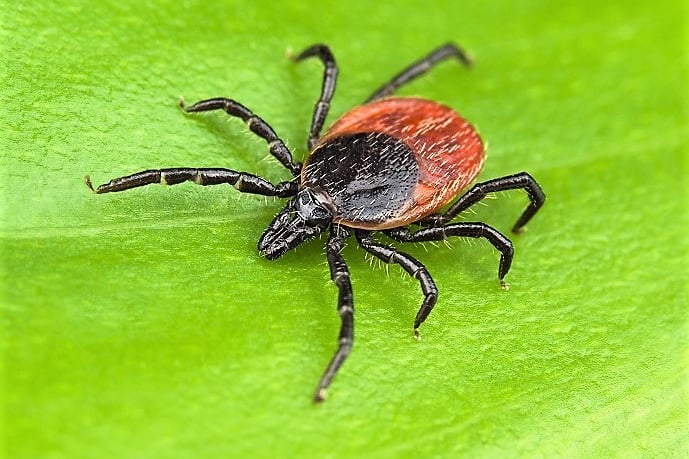EXMOOR farmers are increasingly worried by the “exploding numbers” of ticks which are targeting humans and animals on the moorland, and are pressing for more research to find a vaccine or to control bracken - the ticks’ favourite habitat - an Exmoor Society spokesperson has said.
Latest studies show that ticks are increasingly causing diseases like Louping Ill in sheep and Redwater Fever in cattle - both of which can be fatal to animals.
Infected ticks can also cause the bacterial infection Lyme Disease in humans - there are now up to 3,000 cases in England and Wales each year.
In humans, Lyme Disease can involve flu-like symptoms and a circular red rash, and is usually treated with antibiotics.
Exmoor farmers have been told that the number of diseases transmitted by tick bites has risen and now includes some not previously seen in the UK.
The Exmoor Society statement added: “The risk to human health is greatly concerning Public Health England according to Professor Roy Brown, who has been monitoring tick numbers on Exmoor.
“What is unknown is the damage done to small mammal populations like voles and ground-nesting birds such as curlew and snipe.
“We are concerned that not enough is being done either to find a vaccine or to control dense infestations of bracken.
“The impact on farm animals and the increased costs to farmers is another blow to Exmoor’s hill farming sector at what is already a time of great uncertainty over its future.
“The society is also anxious that walkers are unwittingly risking their health by wearing shorts and not checking for live ticks immediately after walking.”
NHS Guidelines on ticks:
Ticks don’t jump or fly, but climb onto your clothes or skin if you brush against foliage.
Not all ticks carry disease-causing bacteria but the longer they are attached to your skin, the higher the risk of infection.
Remove a tick with fine-tipped tweezers and clean the area with antiseptic or soap and water.
A small red circular patch may appear. If it doesn’t disappear within two weeks or begins to spread contact your doctor for advice.
Early signs of Lyme Disease can be flu-like symptoms, tiredness, headaches and joint or muscle pains.
Later serious symptoms can include problems with the nervous system, arthritis and severe headaches but these are rare. See your GP promptly if you feel unwell and think you may have been bitten by a tick.
Treatment is normally a three-week course of antibiotics. Make sure you finish the course even if you are feeling better.
Persistent and severe symptoms may be referred to a specialist for further investigation and management.





Comments
This article has no comments yet. Be the first to leave a comment.